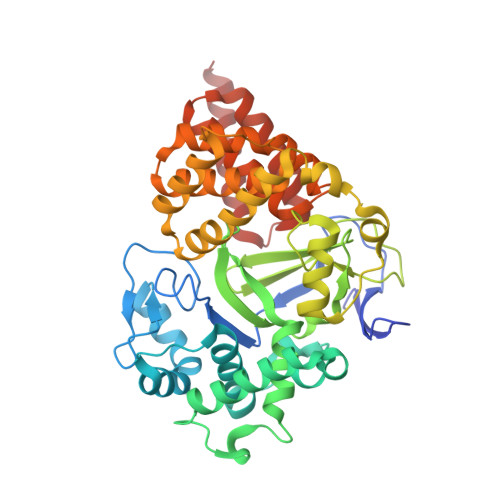Discovery of Isoxazole Amides as Potent and Selective SMYD3 Inhibitors.
Su, D.S., Qu, J., Schulz, M., Blackledge, C.W., Yu, H., Zeng, J., Burgess, J., Reif, A., Stern, M., Nagarajan, R., Pappalardi, M.B., Wong, K., Graves, A.P., Bonnette, W., Wang, L., Elkins, P., Knapp-Reed, B., Carson, J.D., McHugh, C., Mohammad, H., Kruger, R., Luengo, J., Heerding, D.A., Creasy, C.L.(2020) ACS Med Chem Lett 11: 133-140
- PubMed: 32071679
- DOI: https://doi.org/10.1021/acsmedchemlett.9b00493
- Primary Citation of Related Structures:
6P6G, 6P6K, 6P7Z, 6PAF - PubMed Abstract:
We report herein the discovery of isoxazole amides as potent and selective SET and MYND Domain-Containing Protein 3 (SMYD3) inhibitors. Elucidation of the structure-activity relationship of the high-throughput screening (HTS) lead compound 1 provided potent and selective SMYD3 inhibitors. The SAR optimization, cocrystal structures of small molecules with SMYD3, and mode of inhibition (MOI) characterization of compounds are described. The synthesis and biological and pharmacokinetic profiles of compounds are also presented.
Organizational Affiliation:
Medicinal Chemistry, Medicine Design, Oncology R&D, Data and Computational Sciences, and Protein Cellular and Structural Sciences, Medicine Design, Medicinal Science and Technology, GlaxoSmithKline, 1250 South Collegeville Road, Collegeville, Pennsylvania 19426, United States.



















